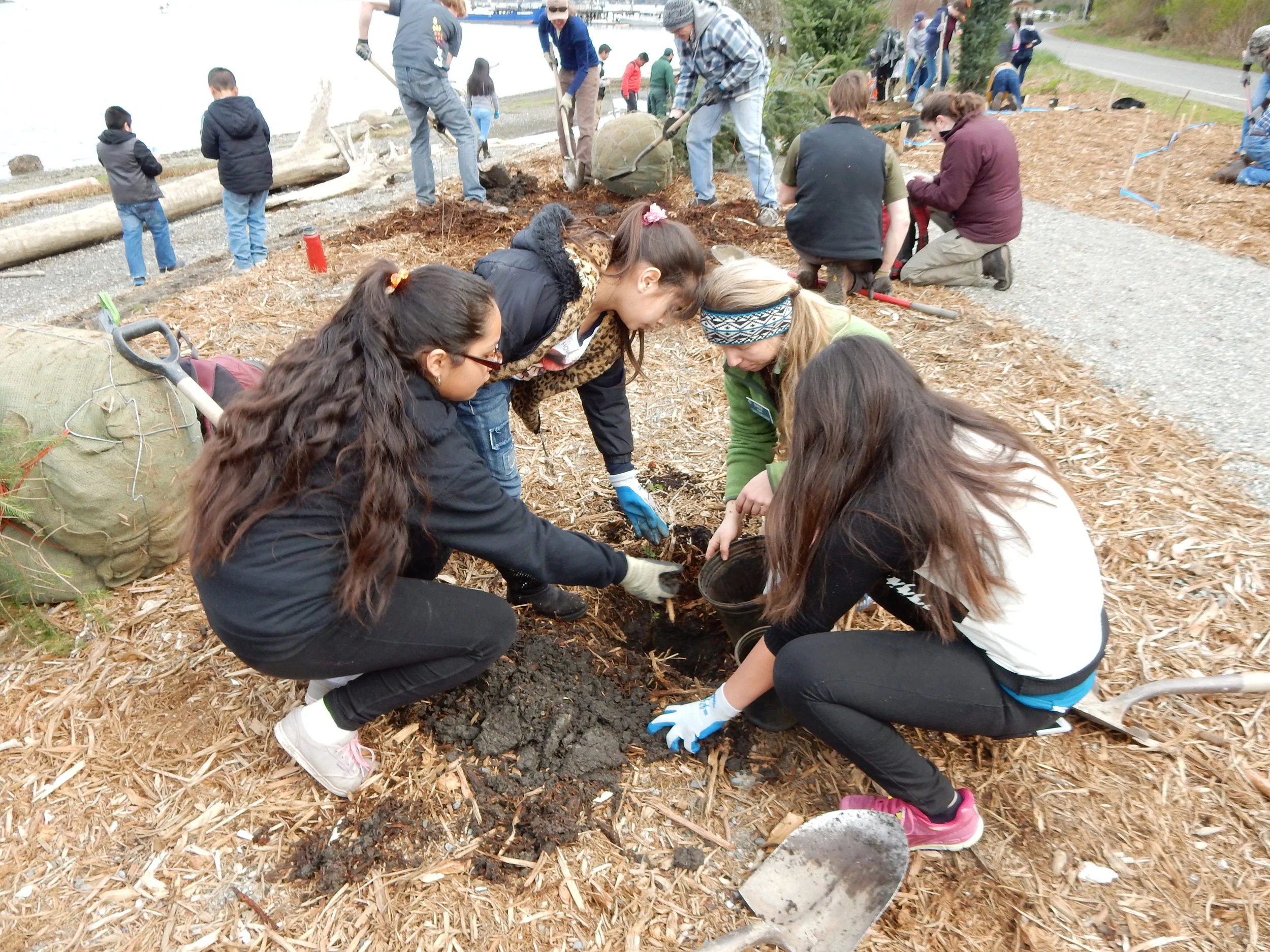Environmental Education has the unique opportunity to bring people and organizations together in the most radical places on this planet. Last month, myself and three other members of the current graduate cohort at the North Cascades Institute hopped on a bus full of students, chaperons, a police officer and National Forest employees as part of the Kulshan Creek Neighborhood Program.
The Kulshan Creek Neighborhood Program (or Kulshan Creek for short) is a partnership between Mount Baker-Snoqualmie National Forest, Mount Vernon Police Department, Catholic Housing Services of Western Washington, North Cascades National Park and North Cascades Institute. Coming together they work with youth from the Mount Vernon, WA neighborhoods of Kulshan Creek and Casa de San Jose to:
- Foster a connection to nature by increasing students’ understanding of their place in the North Cascades and surrounding region
- Help students discover the connection between natural resources, public lands and the urban environment
- Develop a stewardship ethic through meaningful environmental education experiences
- Facilitate opportunities to gain life skills, build self-esteem and foster community engagement and pride
- Provide positive role models for staying in school
- Provide a pathway for students to continue their engagement through next step opportunities including Youth Leadership Adventures and exposure to internships and careers in natural resources, community services and environmental education
Orlando Garcia instructing students what our day is going to look like.
Each month the Kulshan Creek program provides free opportunities for students to engage with the natural world. This year alone they have already been eagle watching and working with the Skagit Land Trust, and later this month participate in the annual Migratory Bird Festival at Fort Casey State Park! On March 19th all of us met with the Skagit Fisheries Enhancement Group to help out with tree planting at Cornet Bay.
The shoreline in the era had little to no vegetation, which meant that two major problems for fish were happening. First, the shore was eroding away too fast mucking up the water and potentially destroying walkways for human visitors. Second, the lack of shade on the water is increasing the water temperature in the area so that fish cannot find as many cool places to stay. The solution to both of those problems is to plant native trees along the shore, beautifying the area and helping our local fish.
Staff at the Skagit Fisheries Enhancement Group explaining best planting techniques.
Quickly each student grabbed whatever tool they could and started to work. It was awesome to see these amazing students working together with other volunteers to restore and protect this special place in our community!
Making the perfect home for a new tree.
Officer: Serrano of the Mount Vernon Police Department giving support to a student.
After our few hours of work and a well deserved lunch on the beach, we then headed into the forest to learn about trees on a deeper level. I had the pleasure of leading everyone in a “moving tree” lesson, in which students acted out each part of the tree. Every student had a job to fulfill: from sapwood to roots, heartwood to branches. They all moved and made a ton of noise to show how active each part of a tree really is!
Moving Tree Lesson
We then divided into smaller groups to use field guides to identify local trees. Using dichotomous keys each group was able to identify of a few species and describe some of the differences they saw in each.
Looking closely at a coniferous cone
We then took all of those skills we learned and went off into the woods! Even though we always stayed on trail we were able to find amazing things from root balls bigger than most students to the bones of a large mammal.
Finding a bone during our hike
The next event for the Kulshan Creek Neighborhood Youth Program is the Migratory Bird Festival at Fort Casey on April 30th. We hope to see students of all ages (including adults) there for a great educational day with the birds!Chattermarks two years ago covered the festival if you would like to get a taste of the fun times to come.
*All photos taken by Holli Watne, graduate student in the Institute’s 15th cohort.
*I originally wrote this article for Chattermarks, the official blog of the North Cascades Institute. You can find all of my posts on Chattermarks here.









